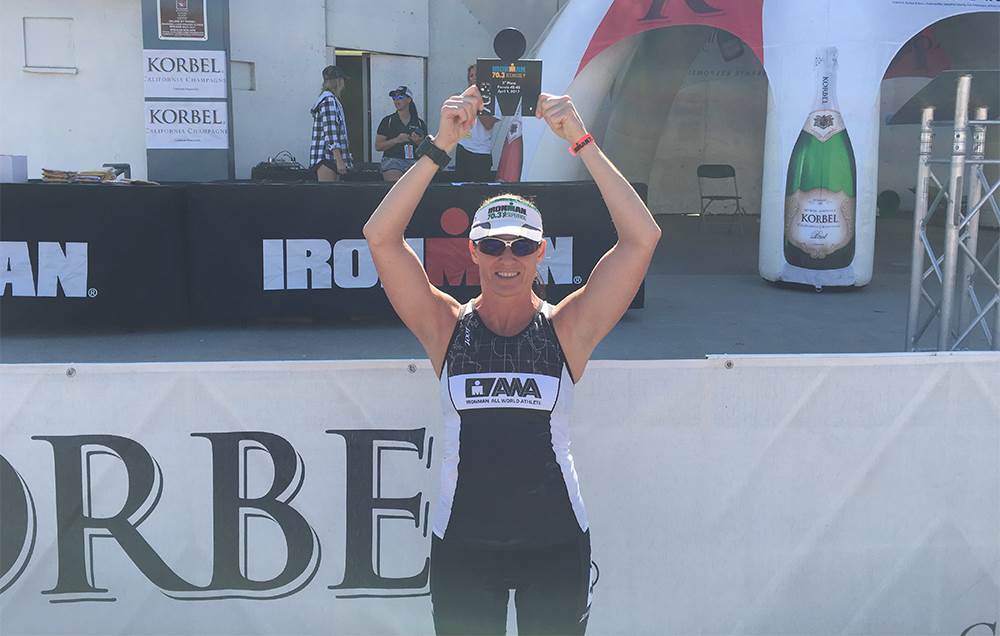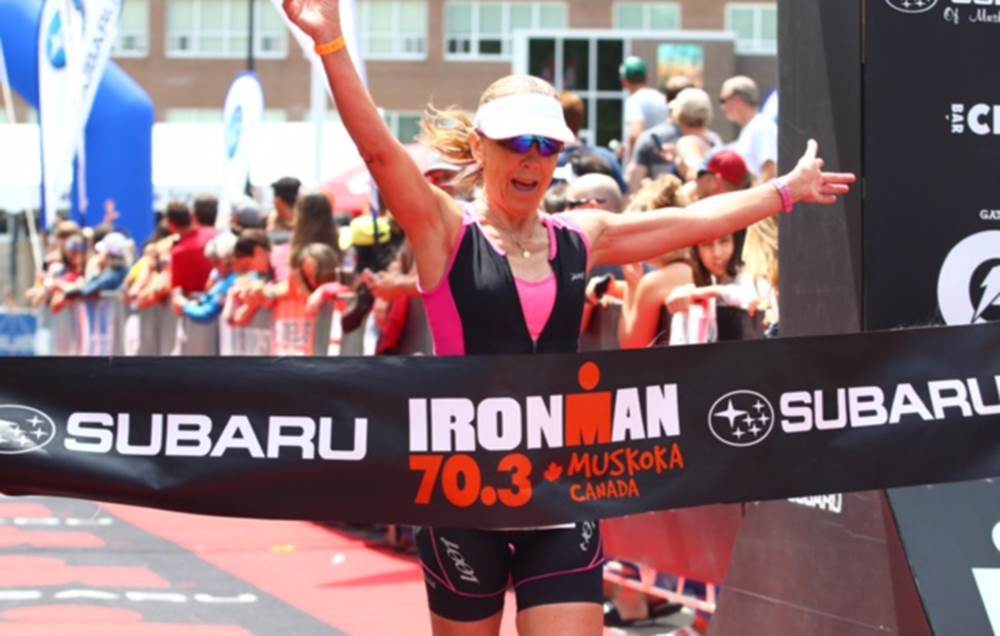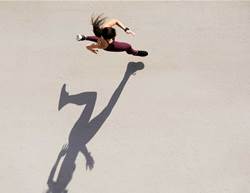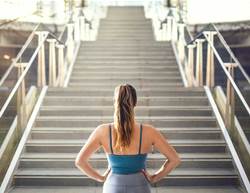These badass females climbed their way from rock bottom to the top of the racing leaderboards for a chance to compete with the best.
The years behind us and the tough stuff we’ve endured can make us even more relentless in slaying our goals. That’s certainly the case for Diane Camet and Jennifer Knowles, who've earned coveted spots to swim, bike, and run their way to finish-line glory at one of the world’s most iconic triathlon events: the 2017 IRONMAN 70.3 World Championship.
This annual event is a grueling challenge, and it's not just for 20- and 30-somethings. Women like Camet, 47, and Knowles, 62, earned their spots by finishing high in their age groups at an IRONMAN 70.3 during the 2017 qualifying season. (Competitors are grouped in five-year age increments and range from 18-24 to 90-plus.) More than 185,000 athletes participate in these qualifying races around the globe, but only a certain number of world championship slots are awarded per age group at each event.
We often think of world champion athletes as those who’ve competed since they were just out of diapers, but Camet and Knowles became triathletes later in life. Knowles had been a longtime runner, and Camet had done some competitive yacht sailing. But knitting three athletic disciplines of endurance training together was new to them, and they made rookie triathlete moves. For example, take each of their first super sprints (a tri that usually has a 10K bike ride): Knowles didn’t know how to change cycling gears and lost her chain twice, and Camet raced on an old mountain bike that weighed her down. And they have something else in common: They both quickly excelled at the sport, despite the aforementioned adversity, and with the same fierce drive that helped them overcome major life struggles. They’ve been unstoppable since.


Racing helped Diane Camet survive domestic violence
Camet started competing in super sprint (short distance) triathlons when she was 38 at the encouragement of a neighbour. She quickly learned that training and racing was the best way to temporarily escape the turmoil she faced at home. “It taught me a lot,” she says of the sport. “It’s how I developed my mental mindset and my inner strength. And that actually saved my life and my kids’.”
Camet says her then-husband physically and emotionally abused her. She recalls him threatening her safety and padlocking the refrigerator to keep her and their three children from accessing food. “The thing about domestic violence is when you’re in it, you don't realise that you're in it,” she says. “You just think that you’re in a bad situation and a bad marriage.”
Swimming, biking and running helped Camet build confidence and keep her kids safe. She took them to visit family members when she raced. Eventually she did her first IRONMAN 70.3. “I just remember celebrating every kilometre,” she says. “I thought, ‘I just got out of the house for 10 hours straight.’ The longer the distance, the longer I got out of the house, and I knew the kids were OK.”
When Camet qualified to compete in London, however, she says her husband canceled her flight and her credit card. Camet got a new card, rebooked her reservations, and went anyway. Once back home, the chaos and control escalated, and after a violent incident, Camet says she filed a police report and a restraining order. (The couple is now divorced.)
Since those harrowing days, Camet has channeled her energy into building a new life for herself and her kids. She’s also worked hard to make the sport of triathlon accessible to others by inventing a USA Triathlon-approved wetsuit that enables paralyzed athletes to swim hydro dynamically in the water.
The World Championship will be Camet’s fifth IRONMAN 70.3. Going into the race, her philosophy is simple: “If I don’t drown and if I don’t crash and I cross the finish line vertically, it was a good day,” she says. “Every day you’re alive is a good day, and every day is an opportunity to begin again.”
Jennifer Knowles overcame grief and fear by getting involved in triathlons
Knowles first got into super sprint triathlons at age 51 when her sons encouraged her to join them. As a competitive runner in school and then a marathoner and an avid ice hockey player, fitness had always been part of her life. But Knowles had been avoiding swimming. In 1995, one of her sons drowned at age 3. “It was a really horrible experience, and I was the one who pulled him out of the water,” she says. “I found him, so it was just brutal.”
Knowles faced her fears on the 400-metre swim. She doggy paddled her way to the first transition and then whizzed past others on the bike, despite having mechanical issues. She ran to the finish line and came in second in her age group. The experience empowered and encouraged her to take swimming lessons.
Meanwhile, her sons signed up for an IRONMAN 70.3, and Knowles served as a volunteer. “Watching this race, I was so inspired,” she says. “It was the most exciting event I've ever been to. I was all ready to sign up for one, but I still had my concerns about my swimming.”
Nearly a decade and many short-distance races later, she finally registered for the IRONMAN 70.3 Muskoka at age 60. She was on the run when her husband, who rode by on his bike on the course sidelines, informed her she had a 20-minute lead on the next person in her age group. A nearby athlete told Knowles she’d be going to the World Championship. Knowles was dumfounded. “Oh no no no, not me,” she said. “I’m just doing this for fun.” Her fellow competitor wasn’t having it. “She said, ‘No, you have to go,’” Knowles recalls. “‘People are dying for these spots. People line up and wait and hope, and what if you never get another spot?’”
The IRONMAN 70.3 World Championship will be her fourth 70.3 race in a little over two years, and despite her work in the water, Knowles has nerves about the swim. “I am still working at conquering that,” she says, “and it's ongoing. As soon as I feel like I'm out of breath, I think I'm going to drown. Even after all the stuff, I have to really work to not slip into that mode.”
Focusing on improving her stroke and speed helps her work through that fear. “When you get later in your years and you're running, you get slower,” she says. “It's nice to have a new challenge to work out. Swimming is something that I continue to get better at.”









